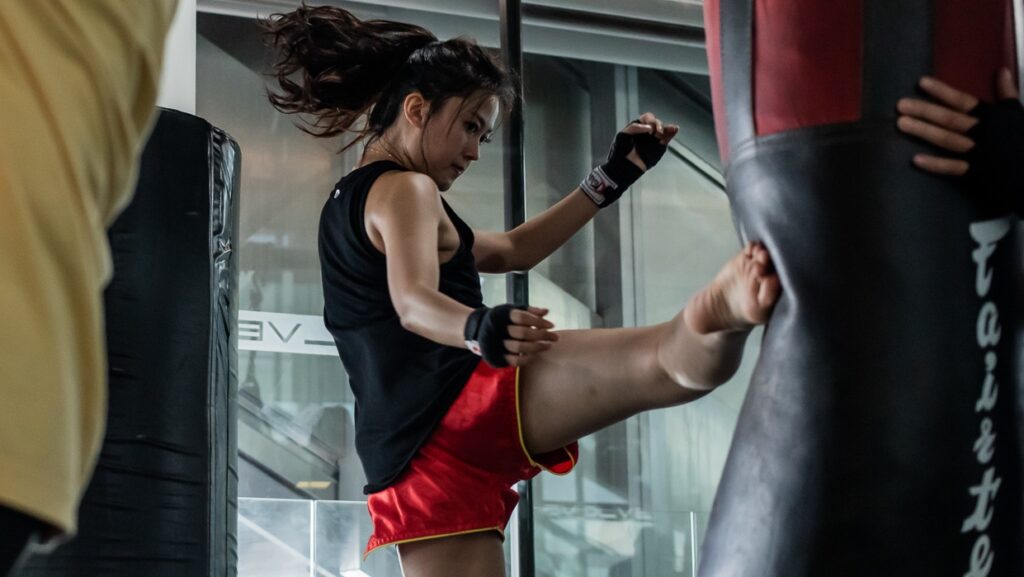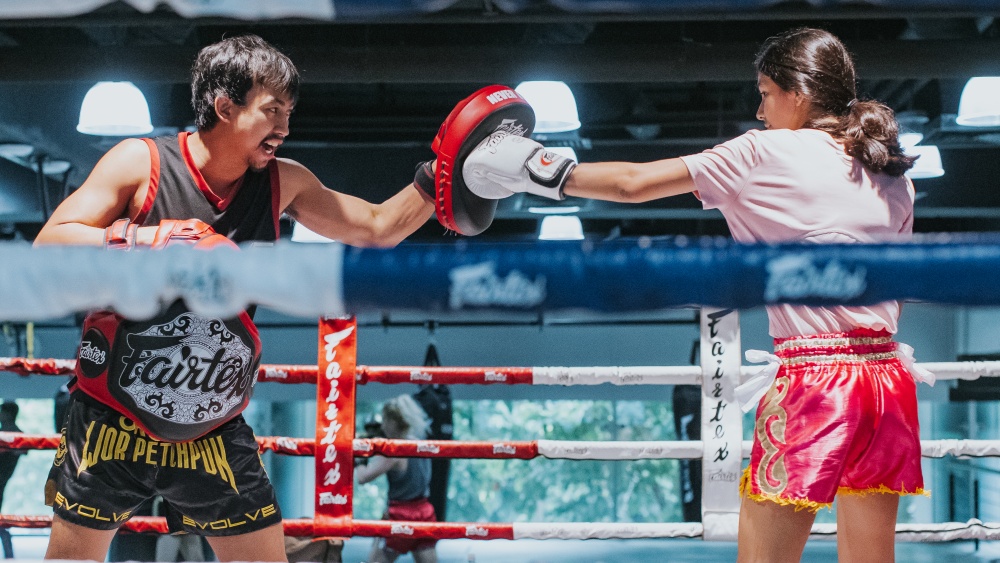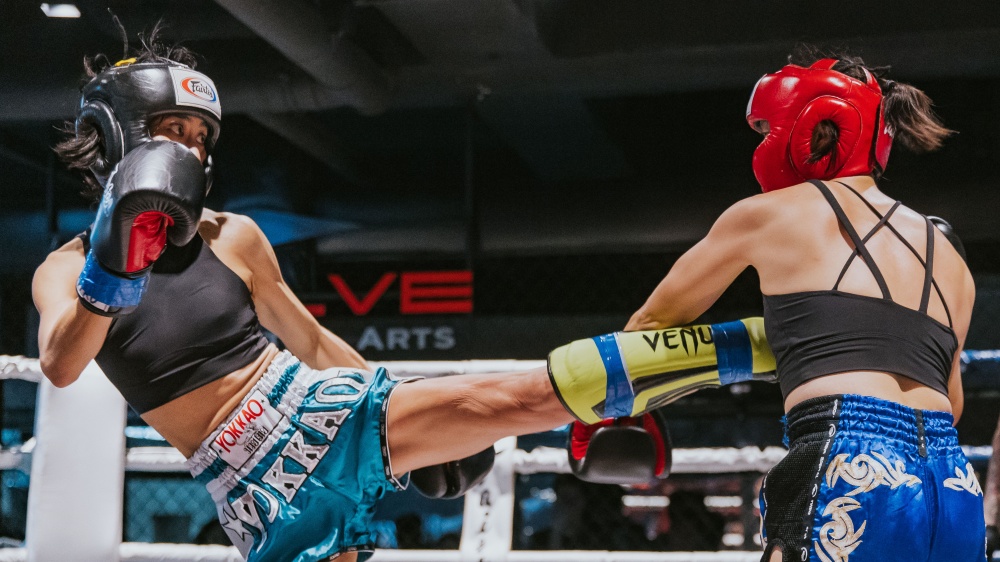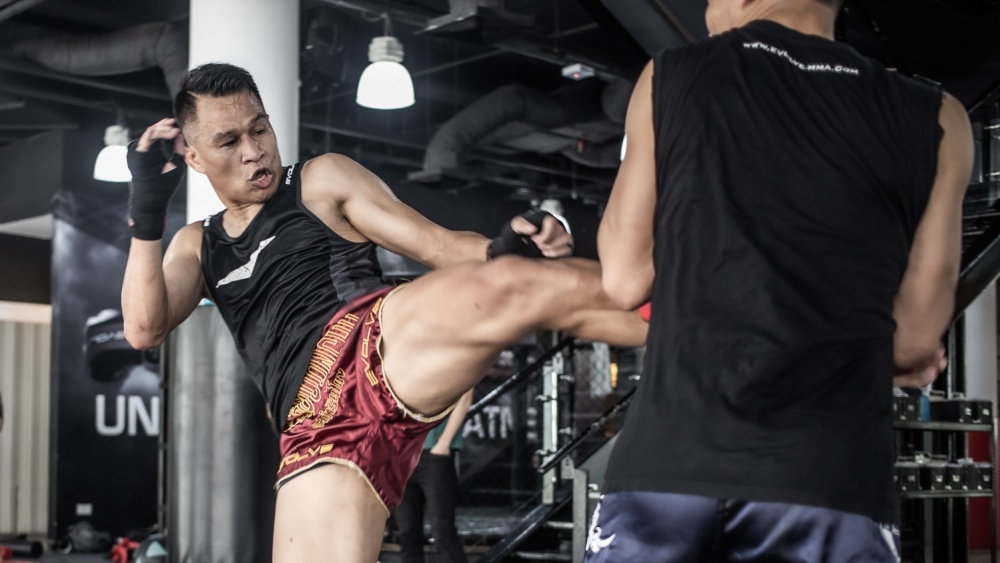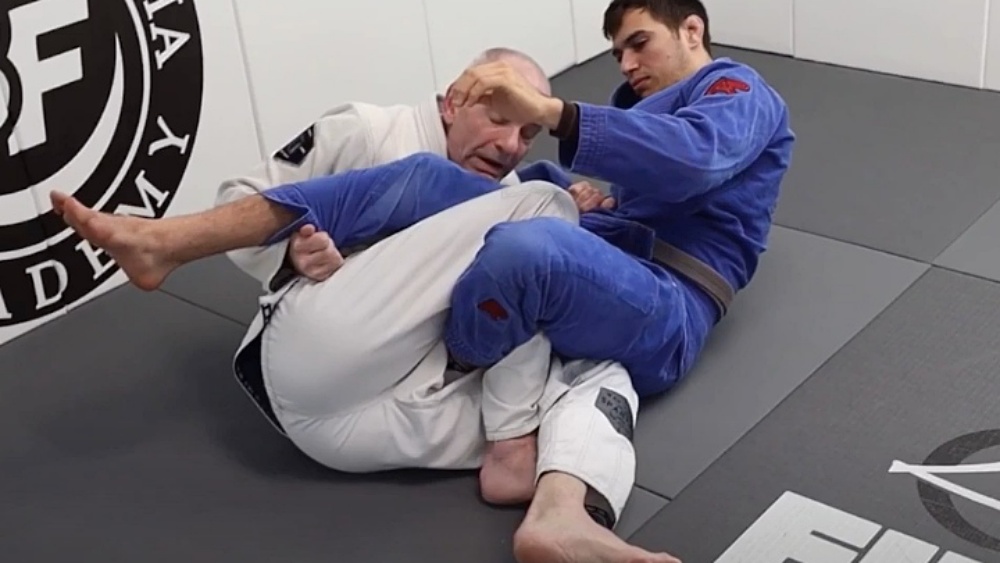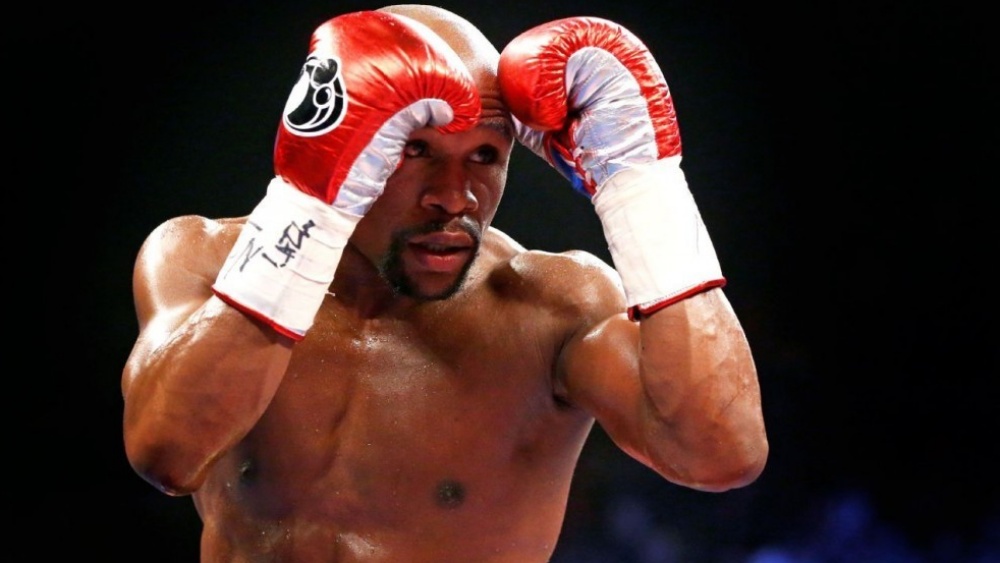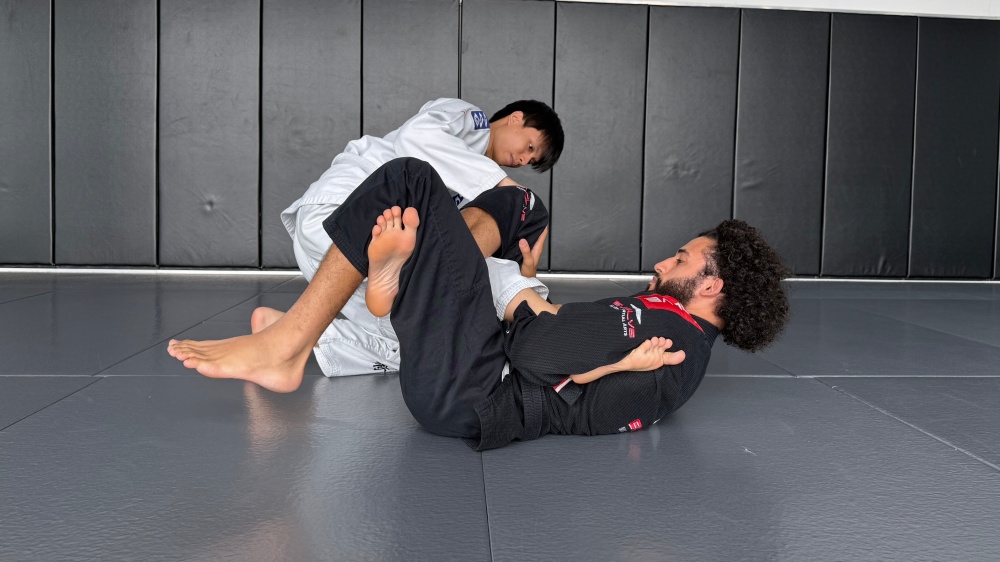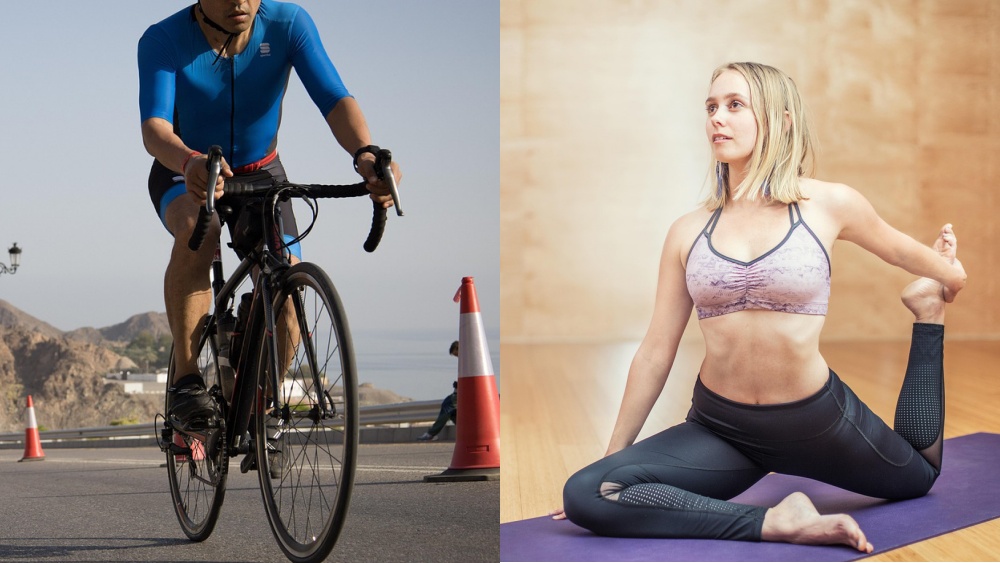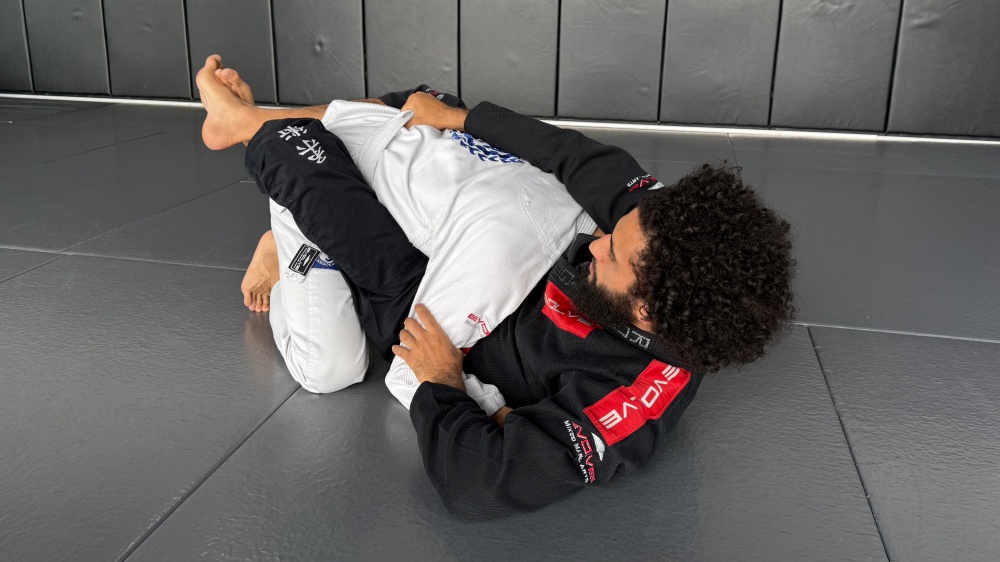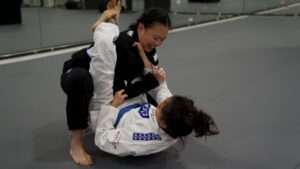Beginners in Muay Thai will often begin with a focus on the basic strikes in the Art of 8 Limbs: punches, elbows, knees, and kicks. From there, other concepts will be introduced, such as head movement, footwork, and defensive techniques. Once a student has a decent understanding of the basics and some control over their movements and striking, they will typically be invited to begin sparring with other students or coaches.
Sparring can feel overwhelming at first. Making the transition from hitting pads or a heavy bag (both of which do not hit back), to a live person that is aiming to disrupt your work in order to impose their own will on you is quite different. It’s a good challenge that will enable you to really begin understanding how to apply your Muay Thai in a live setting and will help you to develop your own style as well. After all, whenever you spar, you’re improving your technique and complementing all those hours of skipping rope, running, and drills. What’s more, you’ll get a much clearer idea of timing and distance, while acquiring the necessary skills for a real fight.
Whether you are brand new to sparring, or you have been sparring a while and are just looking to improve upon your current skills, here are 13 ways that any level athlete can improve their Muay Thai sparring skills.
1) Make Sure You Are In Great Condition
It should go without saying. Before you even think about participating in your first sparring session, you have to be in excellent physical condition.
When your mind and body is in great condition, you become incredibly sharp and focused. Your reaction times are quick and responsive, and your body becomes flexible and durable.
Being in great physical shape is the first checkbox to tick off on that pre-readiness list you have running through your head. So make sure you have put in the hours, so you have confidence in your strength, your technique, and your stamina.
2) Always Have A Goal
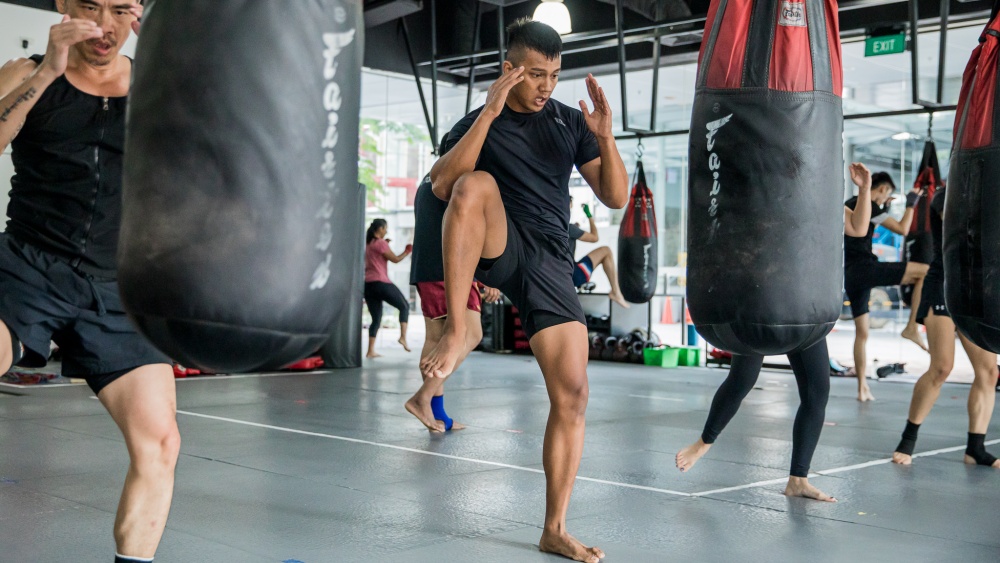
Without a game plan, your sparring session would not be productive. This is because you wouldn’t know what you specifically want to focus on and achieve.
If you’re a beginner and aren’t sure what areas to work on, feel free to ask your instructors for advice – and then use that advice to figure out what you want to achieve. Is it to keep your hands up at all times? To get specific techniques right? Think about it before and during the session.
When it’s over, talk to your sparring partners and instructors to find out what you did well, and learn about the areas you can improve on. You can then develop a game plan based on their feedback, and ultimately work on getting better.
3) Know If You Want To Focus On Offense Or Defense
Relating to the above, you have to understand that there are two aspects of sparring — offense and defense. It’s up to you to decide which area you will be focusing on with every session. As you get more experienced, you don’t need to focus on one aspect so much, but to begin with, it’s good to go in with this focus.
Some martial artists use sparring to practice applying their offensive techniques and combinations. Others like to focus completely on defense, slipping and evading punches and kicks while using footwork to weave in and out of range. Whether you focus on offense or on defense, make sure you are making a conscious effort to give ample time to hone both skills.
Defense is just as important as offense and part of having the confidence to control the outcome of a real fight is knowing how to use both to gain an advantage over your opponent.
4) Don’t Worry About Winning Or Losing
One of the most important things to remember when you’re sparring is that there are no winners or losers in sparring. So you don’t have to go all out and try to kill your partner. The purpose of sparring is to deepen your martial arts practice and ultimately become a better fighter – not to deliver a knockout punch, or destroy your partner!
Also, it helps to leave your ego behind and not worry about how you look during sparring. Yes, this includes the times when you have to tap out or end up getting hit more than you’re hitting. In fact, those are the moments that actually help you to learn and grow the most.
5) Prioritize Learning Technique Than Focusing On Power
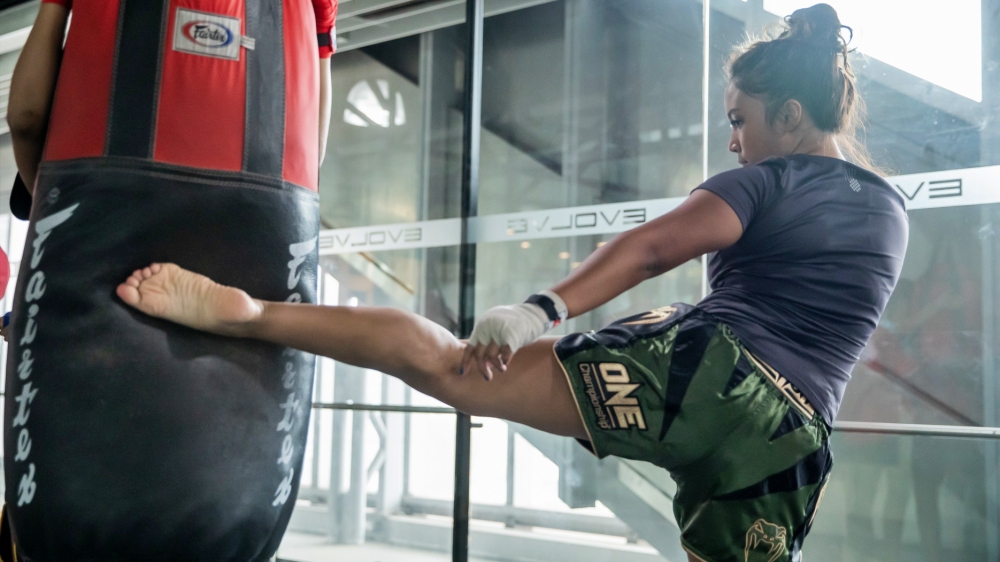
One of the most common beginner mistakes made in sparring is focusing on power rather than technique. This is a major pitfall in sparring, and understandably so. It is really easy to fall into the habit, but of course, this line of thinking is incorrect.
The primary benefit of sparring is allowing you to hone your technique for actual use. Yes, you’ve practiced your techniques on the heavy bags and on the pads with your coaches, but those bags don’t move like real people do and they certainly don’t hit back.
Focus on prioritizing your technique, and once you have that down, then you can start to gradually add power. It’s all about executing techniques properly first, before putting some meat behind your offense. In most situations, technique will always trump power.
6) Keep Calm, Relax And Breathe
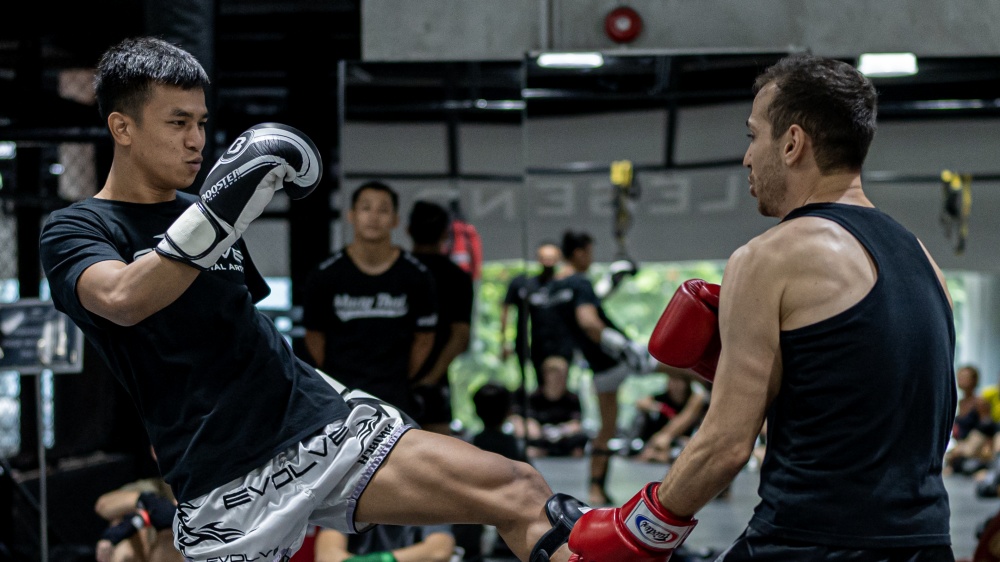
We understand that when you start sparring, it can be pretty nerve wrecking and overwhelming because you just don’t know how to handle the situation. Unfortunately, this might cause you to tense up. However, when you don’t relax and breathe while sparring, you’ll slow down your reaction time and this would affect your performance.
Sparring in a tense state would also cause you to move clumsily, and this would definitely hinder your strikes and defense. Once you learn to relax while sparring, you’ll notice that your movements are much more controlled and fluid.
7) Be Creative, And Try New Combinations
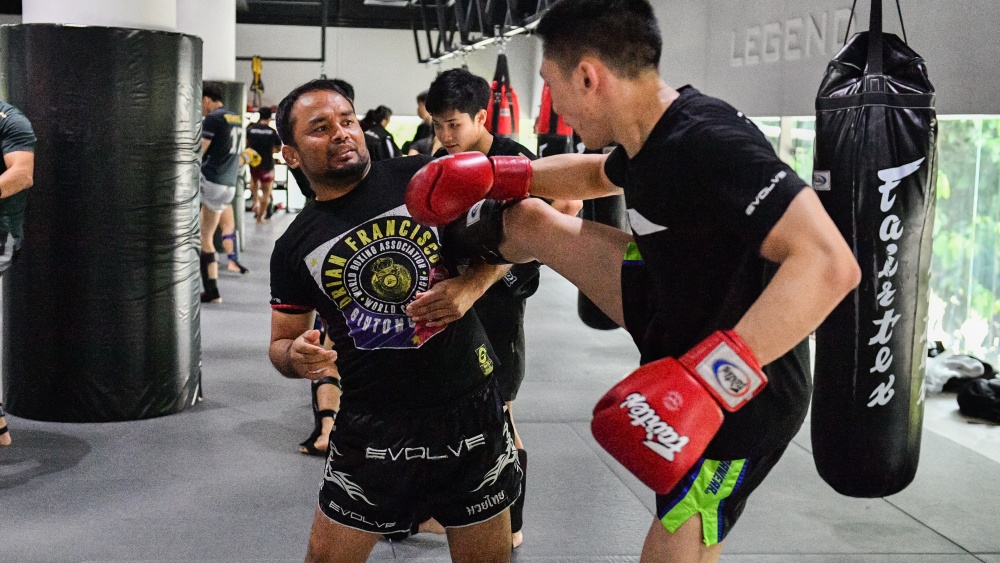
When you start sparring, you should focus on getting all your basics right before progressing to more advanced techniques. However, that doesn’t mean you should keep striking with the same combination. Instead, why not mix and match your basics to form new combinations?
Apart from keeping your partner guessing, mixing it up would help you to be able to execute various combinations and think on your feet. Hence, you’ll learn to adapt to all kinds of situations and be unpredictable while sparring.
8) Utilize Live, Set Drills
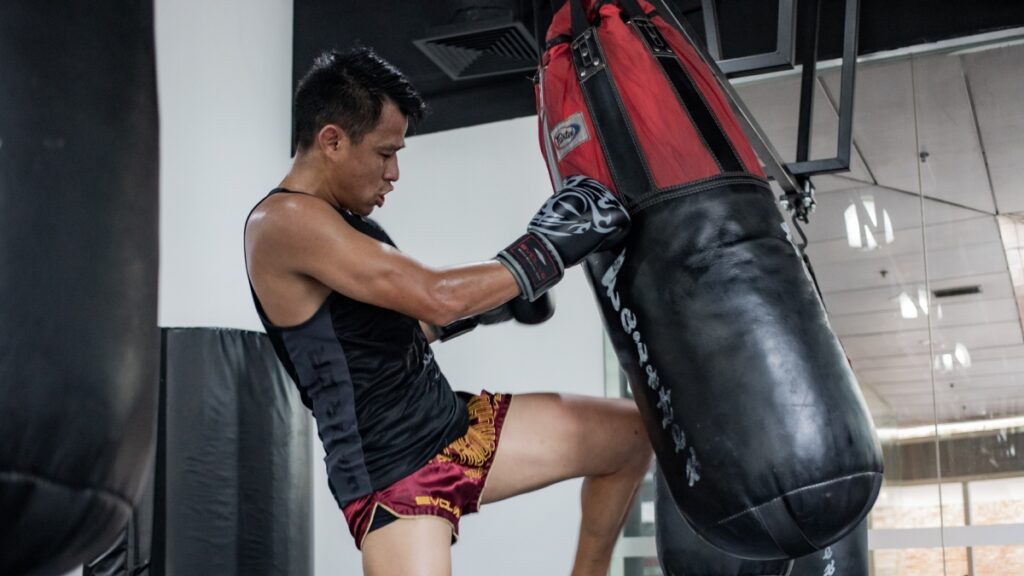
An excellent way to improve your sparring skills is to participate in live, set drilling with a partner. There are infinite drills for live drilling and you will begin to get successful reps of a variety of movements, strikes, defenses, and more, with a live partner.
You can create drills for any type of skill you are looking to hone in on and develop. Isolating a single skill will give you success and teach your body how to move so you can more easily add it into your live sparring. Some example drills that you can easily set up with a partner:
- Slips: If you are wanting to learn how to slip a punch, this is an easy drill to get you the reps you need to be successful. One partner is isolated to throwing either a jab or a cross. The other partner is working to slip the punch with good technique, then follow up with any combination of strikes on their partner. This allows the partner to get in a bunch of slips, as well as begin learning how to put follow-up strikes together on their partner.
- Teeps: If you are beginning to learn how to time and apply your teeps, this simple drill is excellent. One partner will lightly strike at the other, eventually throwing a leg kick towards them. The receiving partner in this drill is working to not overreact to the strikes coming their way, as well as learning how to see the leg kick in time to land a teep. If the receiving partner is having a hard time seeing the kick coming, the feeding partner can always slow the kick down and then ramp it back up as their partner becomes more successful.
Pre-determined, live, set drills are one of the best ways to improve your Muay Thai sparring skills. These two drills are examples for beginners, but you can create drills like this for yourself at all levels of training. They can be as simple or complex as you’d like, but their ultimate goal is to provide an opportunity to get a bunch of successful reps for skills that will be used in a live setting.
9) Don’t Be Afraid To Spar With Different People
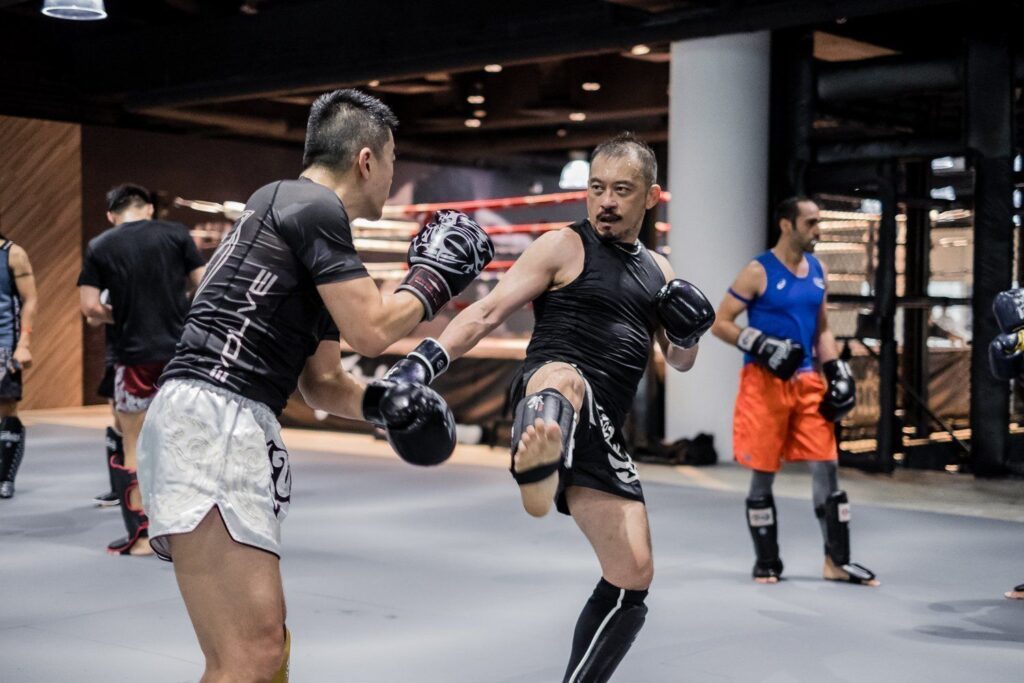
While it might be scary to bump fists with people you’ve never sparred with before, it’s totally worth it. When you change sparring partners, you’re actually enabling yourself to respond, adapt, and react to a variety of fighting styles.
Also, you’ll learn much more from people who are at a higher level – so don’t be afraid to pair up with them. In fact, you should seize the opportunity and step out of your comfort zone. After all, facing your fears and overcoming them would help you get stronger.
10) Put Safety Above Everything Else
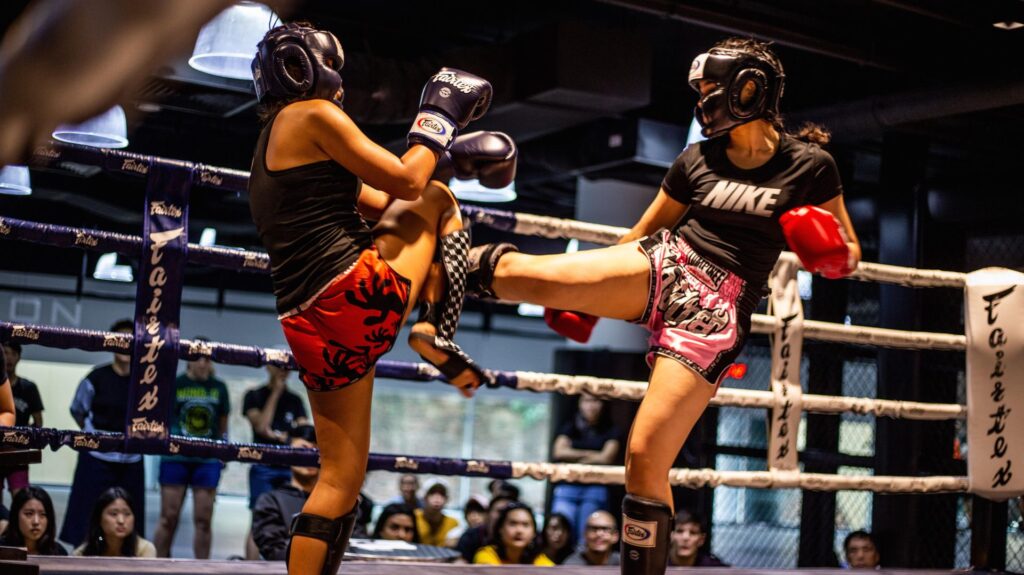
And perhaps the most important beginner tip before your first sparring session is that you should always put safety above everything else. Yes, sparring sessions are meant to simulate the intricate ebb and flow of real-world combat. But the key here is that sparring is held in a safe and controlled environment. This is important because you want to be sure that both you and your sparring partner can both freely practice your techniques together.
Always make sure you are using proper protective gear, and that your sparring is supervised by your coaches and trainers. There must always be a superior watching over what is going on so they can guide you. They can see what’s going on from a different perspective and can instruct you whether to pull back a little or to exert more effort.
11) Have Fun!
All of us at Evolve Daily believe that this is the most important thing to keep in mind when you’re sparring. After all, sparring should be a fun way for you to learn how to use the techniques you learned in class and elevate your game.
At the end of the day, it’s important to always respect your sparring partner and not treat him or her as a human punching bag – because you’re all there for the same reason: to learn, grow, and become a better martial artist.
12) Always Imagine An Opponent
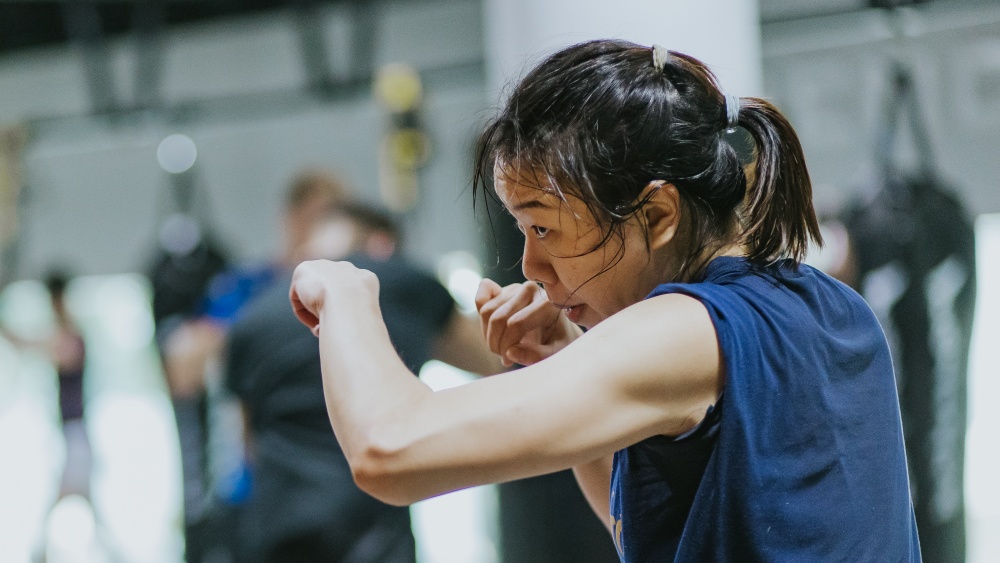
You won’t always have a partner available to drill with you. Sometimes you need to work on your own on a heavy bag or by shadowboxing. Whether you are in the gym, at your home, or traveling in a hotel room, you can improve your sparring skills by adding a mental component to your work.
As you shadowbox or hit a heavy bag, imagine you have an opponent right in front of you. It’s easy to throw 50 strikes in a row at a bag, but it doesn’t always translate to sparring where an opponent is moving and striking and causing you to move, too.
As you work the bag, imagine they are throwing strikes at you. Add in your footwork and head movement. Pressure the bag and then find some range. Defend and counter an imaginary kick coming at you. Just because you don’t have an actual opponent or partner in front of you doesn’t mean you can’t improve your sparring skills during this time.
The next time you mindlessly hit a bag, choose to focus your mind instead of having an actual opponent in front of you. You will create a more realistic round for yourself on the bag, and improve your sparring skills, as well.
13) Watch Others
One way to really help improve your sparring skills is to spend some time watching other people who are more skilled than you. Watch how they move and how they strike. Watch their attitudes and how they respond to getting hit or swept. Notice how hard or light they strike. Watch how they explore a variety of skills, even the ones that they aren’t that great at yet.
Watching others is a great way to get a good feel for the vibe and expectations at your gym, while also getting to see the practical application for all of the skills that you’ve been working on the bags or on the pads with your coach or partner. If you are a visual learner, this will also be a great way for you to see techniques that you might want to apply yourself or notice how some athletes have games that look similar to yours, or that you might want to emulate.
If you are eager to improve your sparring skills, be sure to spend some time watching others. Watching others in the gym is also a great way to add to your sparring skills during times when you are injured and cannot physically train. Injuries don’t have to equate to stalled learning.
Improving Your Muay Thai Sparring Skills
There are many excellent and practical ways to improve your sparring skills. Whether you have a partner that can do some live, set drills with you, or whether you are working alone on a bag or shadowboxing, you can definitely improve your skills. Further, even during times when you are injured or unable to train for whatever reason, showing up to watch and observe others sparring will certainly add to your sparring skills, as well.
Learn Muay Thai Sparring Drills From World Champions

If you don’t know what Muay Thai sparring drills are, or if you are looking to level up your Muay Thai sparring, consider Evolve University’s Muay Thai Training Series: Sparring Drills, an in-depth online video Training Series taught by legendary Muay Thai World Champions.
In this Training Series, beginners to Muay Thai sparring will learn how to implement fundamental techniques in sparring while advanced practitioners will learn how to strengthen their weaknesses and implement various fight strategies. No detail is spared as Evolve MMA’s Muay Thai World Champions break down sparring drills they use to sharpen their tools and prepare for fights. Learn how different sparring drills can develop specific parts of your game while improving your technique, balance, timing, and reactions.
Packed with 15 chapters of sparring drills, 3 hours of on-demand video, Evolve University’s Muay Thai Training Series: Sparring Drills is the ultimate guide to training like a World Champion.
Get Muay Thai Training Series: Sparring Drills Today!

